Planting conditions of coffee trees in Yunnan where can I plant coffee trees in China? is Yunnan coffee good?
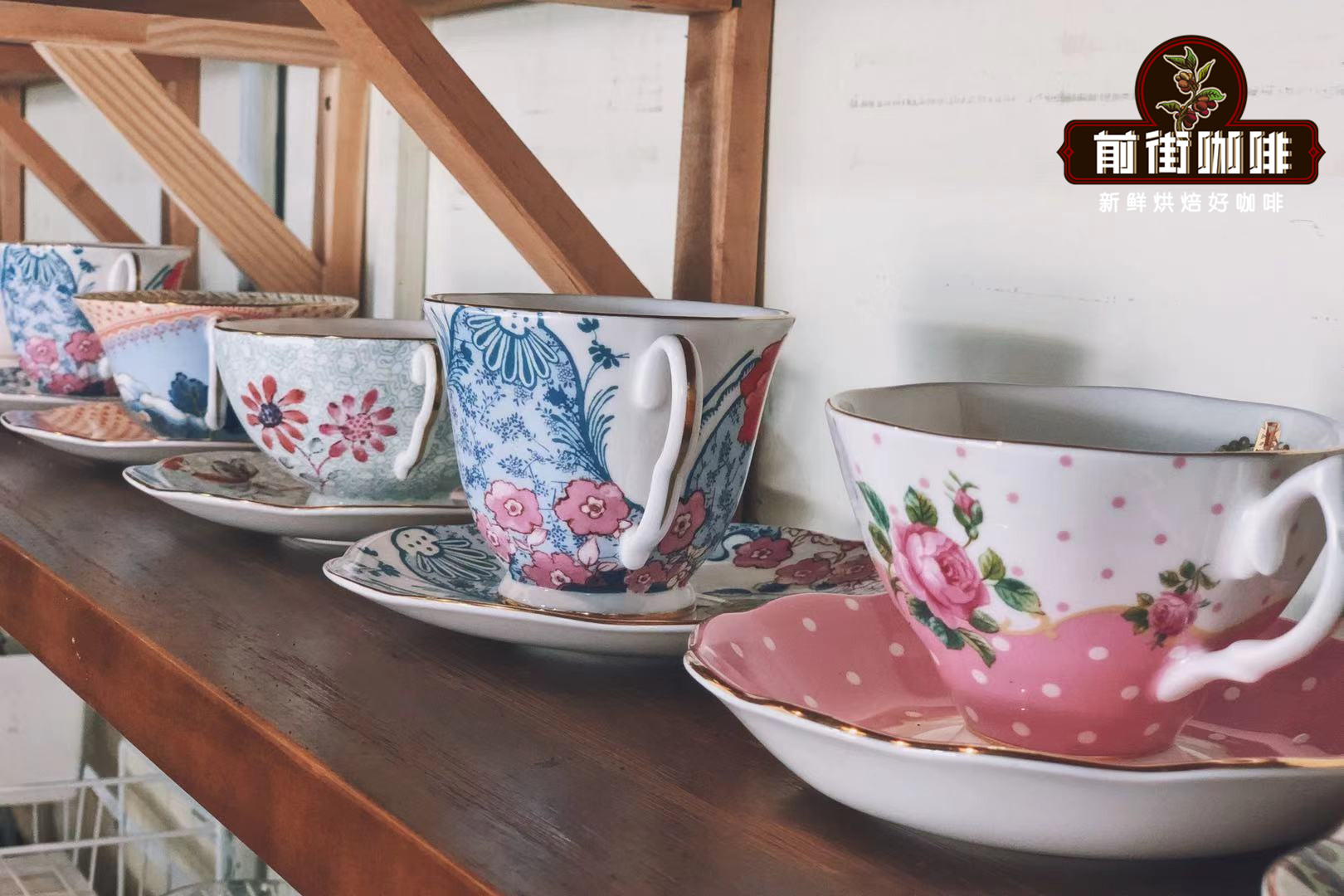
Professional coffee knowledge exchange more coffee bean information please follow the coffee workshop (Wechat official account cafe_style)
At present, most of the individual coffee beans in the boutique coffee market are foreign, so where can we plant coffee trees in our country? According to Qianjie, Yunnan, Fujian and Guangdong are suitable for planting coffee trees in China, among which Yunnan coffee beans are the most famous and the flavor is the best, so in recent years Yunnan coffee has also begun to be active in the boutique coffee market with unlimited potential. for example, Qianjie Coffee has also set up a plantation specializing in tin card varieties in Baoshan, Yunnan Province. Well, in this next article, Qianjie Coffee will come to popularize science about the planting conditions and coffee flavor performance in Yunnan coffee producing areas.
Planting history of coffee producing areas in Yunnan
Although Yunnan coffee has only begun to become famous in recent years, it is now the largest coffee producing area in China, and it has been planted for a century.
According to Qianjie Coffee, the history of coffee cultivation in Yunnan can be traced back to 1892. More than 100 years ago, French missionary Father Tian Deneng planted the first coffee tree in Zhukula Village, Binchuan County, Dali City-which is generally traced back to the earliest record of coffee introduced into Yunnan. For the next 100 years, however, coffee trees did not grow in this area.
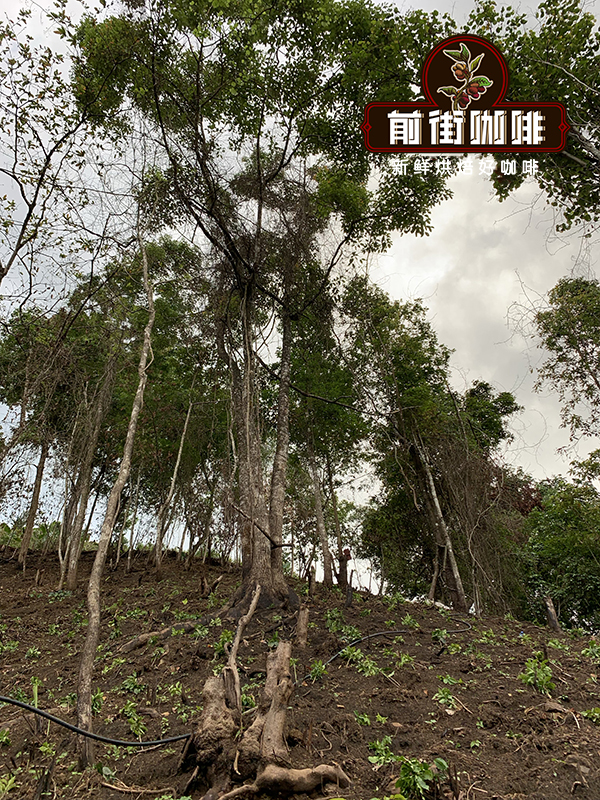
Instead, in 1904, the French missionary Tian Deneng brought coffee to Yunnan from abroad and successfully planted the first coffee tree in a village called Zhu Kula (now Binchuan County in Dali). This can be called the beginning of Yunnan coffee planting history.
After 1930, Mr. Liang Jinshan, a famous overseas Chinese leader, brought coffee to Pudong and Luoming for planting until the founding of the people's Republic of China.
After 1952, under the guidance of experts in Baoshan, Lujiang and other places began to grow a large number of coffee, and the history of large-scale cultivation has been nearly 60 years. At this time, the varieties of coffee grown in Yunnan are all iron pickups.
With the further reform and opening up in 1992, Nestl é and other foreign companies settled in Yunnan to develop the coffee industry in Yunnan. At that time, Katim, a coffee variety provided by Nestl é, was planted on a large scale, which is famous for its high disease resistance and high yield. then it replaced the only good flavor, delicate and weak iron pickup, and became the most important coffee variety in Yunnan. Therefore, the main use of Yunnan coffee at that time was to sell it to Nestle as the raw material of instant coffee.
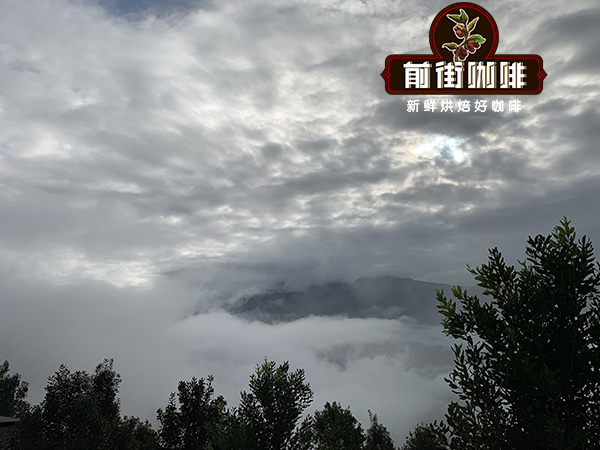
By the end of 1997, the planting area of coffee in Yunnan province had reached 7800 hectares. Until today, Qianjie Coffee has learned that Yunnan Province accounts for 70% of the total area of coffee in China, and its output accounts for 83% of the country's total. Therefore, in terms of planting area and coffee bean production, Yunnan Coffee has established the leading position of coffee in China.
Planting conditions of coffee bean production area in Yunnan
According to Qianjie Coffee, it is understood that the reason why Yunnan can dominate the Chinese coffee market is that the western and southern parts of Yunnan Province are located between 15 °N and the Tropic of Cancer, most of which are 1000-2000 meters above sea level, and the topography is mainly mountainous and sloppy. and ups and downs, fertile soil, sufficient sunshine, rich rainfall, large temperature difference between day and night, very suitable for the cultivation of Arabica coffee beans.
Qianjie Coffee has also been mentioned in the previous article that the excellent flavor of a coffee bean depends on its planting area, variety and treatment. Then Qianjie Coffee will explain in detail what high-quality coffee growing areas there are in Yunnan.
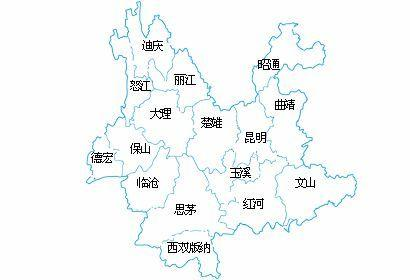
Yunnan coffee bean producing area
At present, Yunnan coffee is mainly grown in Pu'er, Xishuangbanna, Wenshan, Baoshan, Dehong and Lincang in the south and west of Yunnan.
Dehong: it has the laudatory name of "hometown of Chinese coffee". The coffee planting in Dehong Prefecture is above 1000 meters above sea level, of which 30, 000 mu are planted in the mountains above 1600 meters above sea level. in addition, the coffee grown in Dehong Prefecture mainly uses organic fertilizers and organic pesticides, resulting in high quality coffee. it is one of the rare high-quality coffee producing areas in the world.
Baoshan: the cultivation of coffee in Baoshan began in the mid-1950s, and the first coffee seedling was introduced by the late patriotic overseas Chinese Mr. Liang Jinshan in Southeast Asia. In recent years, with the expansion of international trade, Lujiangba's small-grain coffee is more famous. Merchants in Europe, the United States, Egypt, Hong Kong and Macao, especially in Britain, the United States, Egypt, Hong Kong and Macao all regard it as top-grade coffee, and their products are in short supply. In December 2010, after being examined and approved by China's General Administration of quality Supervision, Inspection and Quarantine, it was decided to implement national geographical indication product protection for "Baoshan small Coffee".
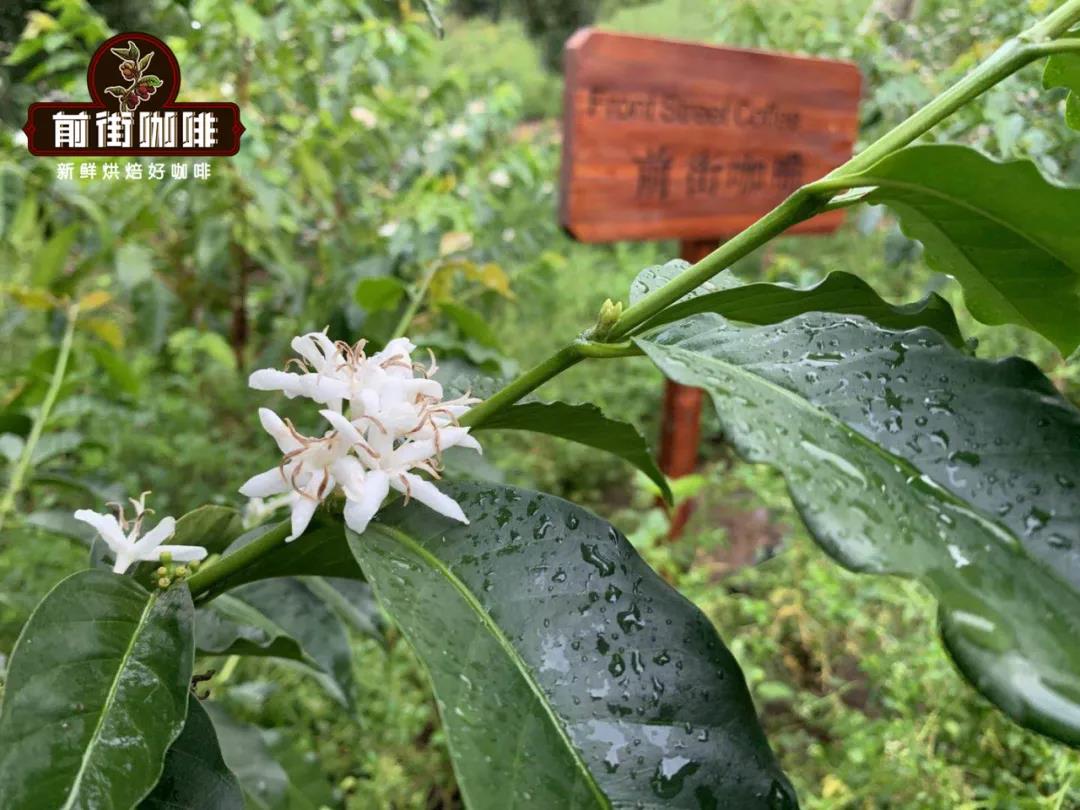
The reason why Qianjie Coffee chooses to grow coffee at the junction of Yunnan Baoshan and Myanmar is that the average temperature in Baoshan is 21.5℃, the highest is 40.4 ℃, and it is basically frost-free all the year round, so it is recognized as the best producer of small-grain coffee. The small-grain coffee cultivated here is famous at home and abroad for its strong but not bitter, fragrant but not strong, well-proportioned small noodles, mellow and fruity. Baoshan small-grain coffee in Yunnan has a long history of cultivation. Baoshan small-grain coffee can be said to be a national geographical indication product.
Lincang: because of its unique geographical location and climatic conditions, Lincang has become the focus of many coffee enterprises, and has successively established 200 mu and 100 mu of high-quality coffee breeding bases in Mengding Town and Lincang Happiness Farm in Gengma Autonomous County of the city. coffee is planted in Gengma, Zhenkang, Yun County, Cangyuan, Yongde and other places.
Pu'er: tea village Pu'er has cultivated coffee for 150 years. At the end of 1990s, Pu'er City began to cultivate coffee as a dominant backbone industry to adjust the industrial structure and increase farmers' income.
Yunnan coffee bean variety-small grain coffee variety
According to Qianjie Coffee, Yunnan has cultivated many varieties of coffee, including Katim, Tieka, Bourbon, Kaddura, Kaduai and so on, because the history of coffee cultivation is much slower than that of other countries. But almost all you see on the market is Katim, because it has the highest production capacity, and more farmers choose to cultivate Katim coffee trees with high performance-to-price ratio than other coffee varieties that are more difficult to grow.
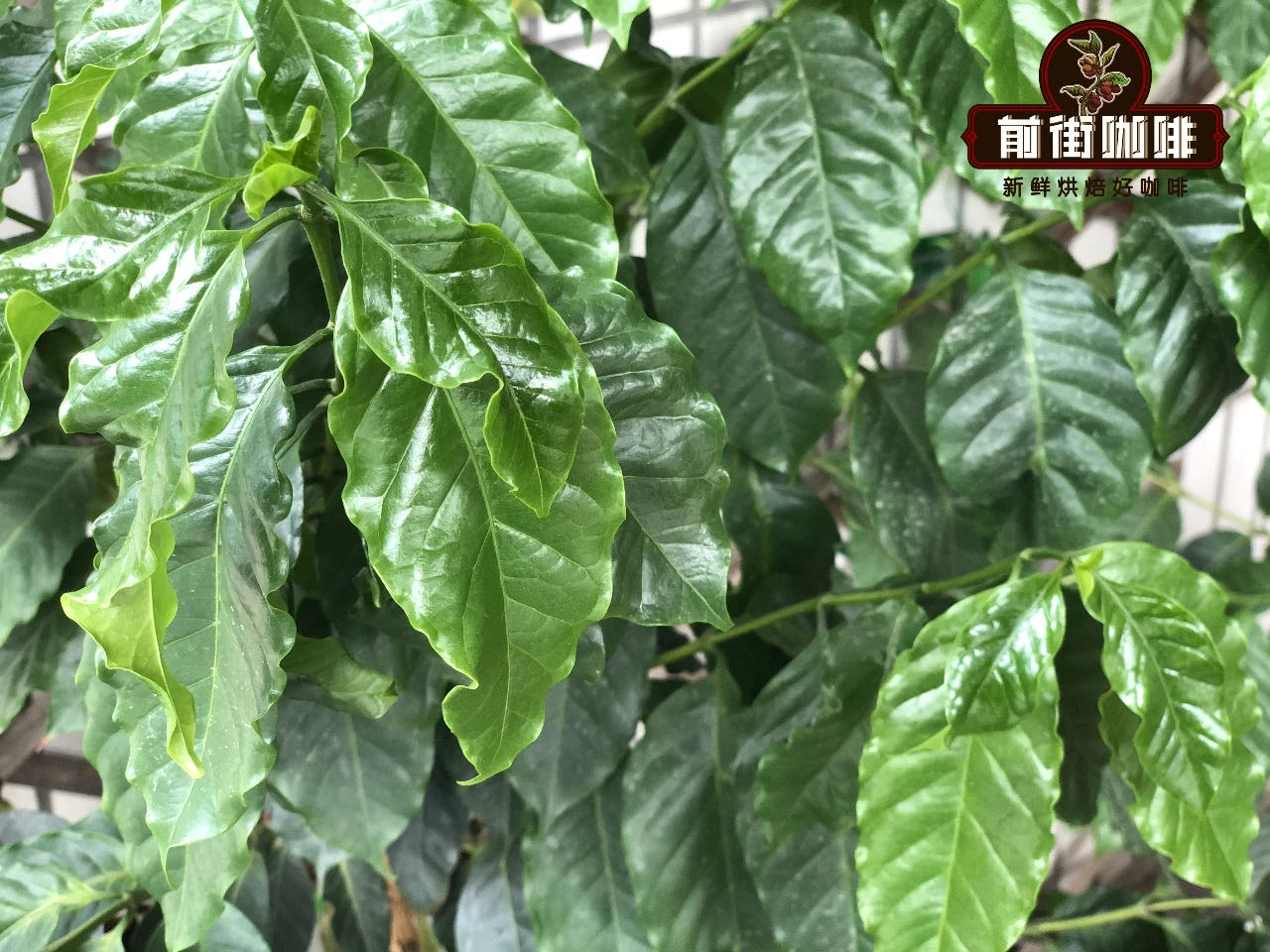
Iron pickup
Iron pickup is the oldest native variety of Arabica in the coffee market, and almost all of the coffee varieties to which Arabica belongs are derived from iron pickup. Iron pickup has an elegant flavor, but its physique is weak, its disease resistance is low, and it is easy to be infected with leaf rust. Therefore, the output of coffee beans is low, and there is no way to achieve economic benefits. In recent years, iron cards in Central and South America have been gradually replaced by Kaddura and Kaduai. So the figure of the iron pickup is becoming more and more rare. Although the flavor of the iron pickup is elegant, it is not as popular as bourbon.
On the other hand, Qianjie Coffee Manor mainly grows the coffee trees of the iron pickup varieties in Yunnan, because the iron pickup coffee has its unique quiet and clean flavor, as well as balanced features, and its taste is high. So although it is not easy to grow the coffee trees of the iron pickup varieties, Qianjie coffee still hopes that the Yunnan coffee tasted by coffee lovers can show the best flavor.
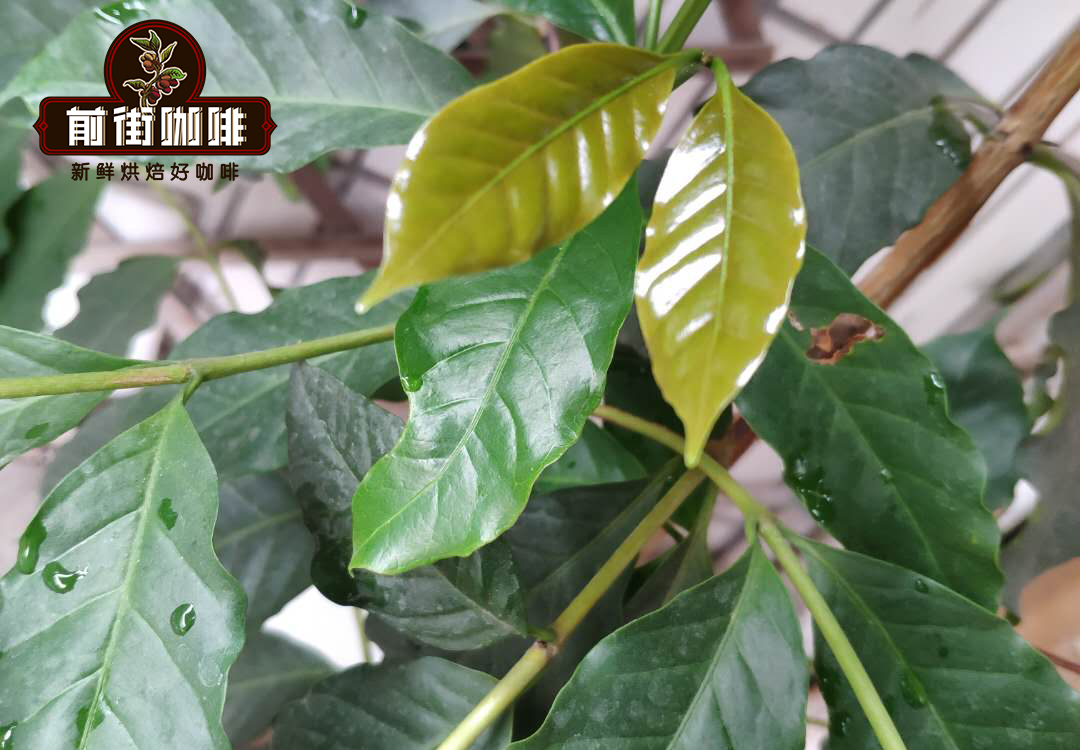
Katim.
Katim is a combination of Arabica and Robusta, which has good resistance to leaf rust and rich oil, high yield and easy to grow, so after crossing with Arabica, Katim has 25% of the Robusta gene, which improves resistance to leaf rust and retains rich oil. at the same time, it also has the rich taste of some tin card original species.
So at present, there are two varieties of Yunnan coffee beans in Qianjie coffee shop; one is a washed tin card, and the other is Katim coffee beans. Yunnan iron pickup is labeled as Yunnan boutique coffee, while Yunnan Katim coffee beans are labeled Yunnan small-grain coffee according to market habits. These two Yunnan Coffee Qianjie Coffee will be roasted to medium roast, because Yunnan is not a sour producing area, coffee bean flavor is more balanced, the tone is nut, brown sugar flavor.
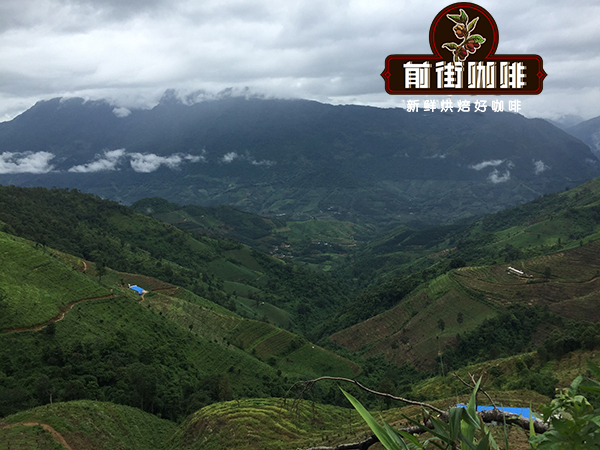
Yunnan coffee treatment method
According to Qianjie, up to now, Yunnan coffee beans have been treated by many methods, but Yunnan coffee beans produced by Qianjie coffee are mainly treated with water washing, because the water washing method can best reflect the most primitive flavor of a coffee bean. it can also make the flavor of coffee beans cleaner and brighter and reduce miscellaneous flavor, so Qianjie coffee uses water washing treatment to deal with coffee beans. The aim is to make coffee fans in Laiqian Street Coffee Shop drink the most authentic and primitive flavor of Yunnan coffee beans.
However, for example, the Katim variety of coffee beans, Qianjie coffee, uses the sun treatment method. Because the sun-treated coffee beans have been exposed to the sun for a long time, the flavor of the sun-cured coffee beans is also stronger, the sense of hierarchy is also richer, and it has a fermented flavor of wine. And the sweetness will be higher.
However, the dryness of the coffee fruit is also difficult to control, and if the drying ground is not clean, it is easy to add impurities to the coffee beans, which will lead to the increase of defective beans, while in the drying process, the coffee fruit is accompanied by meat, so it is easy to mildew and decay.
But fortunately, with the development of technology, coffee farmers pursue higher quality sun-cured coffee beans, so they begin to use instruments and manpower to closely observe the degree of fermentation and dryness of coffee, and find that abnormal coffee will be removed. Of course, the cost of this operation will be higher, but it is also more detailed, so it is also called exquisite solarization. So there are still many coffee lovers like sun-treated coffee beans, so Qianjie coffee is still on the shelves of this Yunnan sun Katim, at the same time, it can also make a different flavor comparison with washed Yunnan small-grain coffee.
Yunnan coffee grading system
Secondly, according to Qianjie Coffee, Yunnan coffee beans and foreign coffee producing countries have their own set of coffee classification standards, but because the coffee planting history is relatively short, generally speaking, it is still not mature enough. Therefore, its grading system is also relatively messy.
(1) International commonly used classification standards:
According to the size of coffee beans, the round hole grading screen is used for classification. The international custom of small grains of coffee has a size of 10-20, and the number used represents the sieve aperture as the fraction with that number as the numerator and 64 as the denominator, in inches. For example: 14 refers to the raw coffee beans that can pass through a sieve with an aperture of more than 64 inches by 14thumb, and 19 refers to those that can be screened by a sieve with an aperture of more than 64 inches by 19thumb. (1 inch ≈ 2.54cm)
(2) the common grading standards of domestic coffee:
According to the sieve hole 6.5, 6.0, 5.5, 5.0 mm is divided into five levels.
First class: more than 6.5mm, full and complete particles.
Second class: 6.0-6.4 mm, plump, more uniform.
Grade 3: 5.3-5.9 mm, fuller and slightly less uniform.
Level 4: 5.0-5.4 mm, with incomplete rice, accounting for more than 75% of the total.
Level 5: less than 5.0mm, incomplete rice, complete accounted for more than 30%.
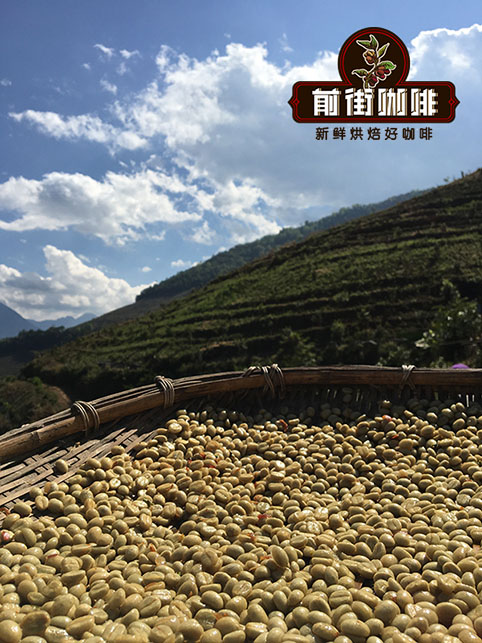
(3) International standard rules for the inspection of defects in small grains of coffee:
It is graded according to the number of defects, and is often identified by how many defects are contained in a certain coffee bean. According to the identification method of impurities and defective beans in coffee beans stipulated by the International Standards Organization, 300 grams of coffee bean samples were taken to calculate the magazines and defective beans for classification.
The above is some relevant information about Yunnan coffee beans, a single coffee producing area in China, sorted out by Qianjie Coffee, hoping to help coffee lovers who want to know relevant knowledge. then Qianjie Coffee will share some high-quality Yunnan coffee beans with you.
Recommendation of Yunnan coffee beans from single origin
Qianjie coffee Yunnan Huaguoshan coffee beans
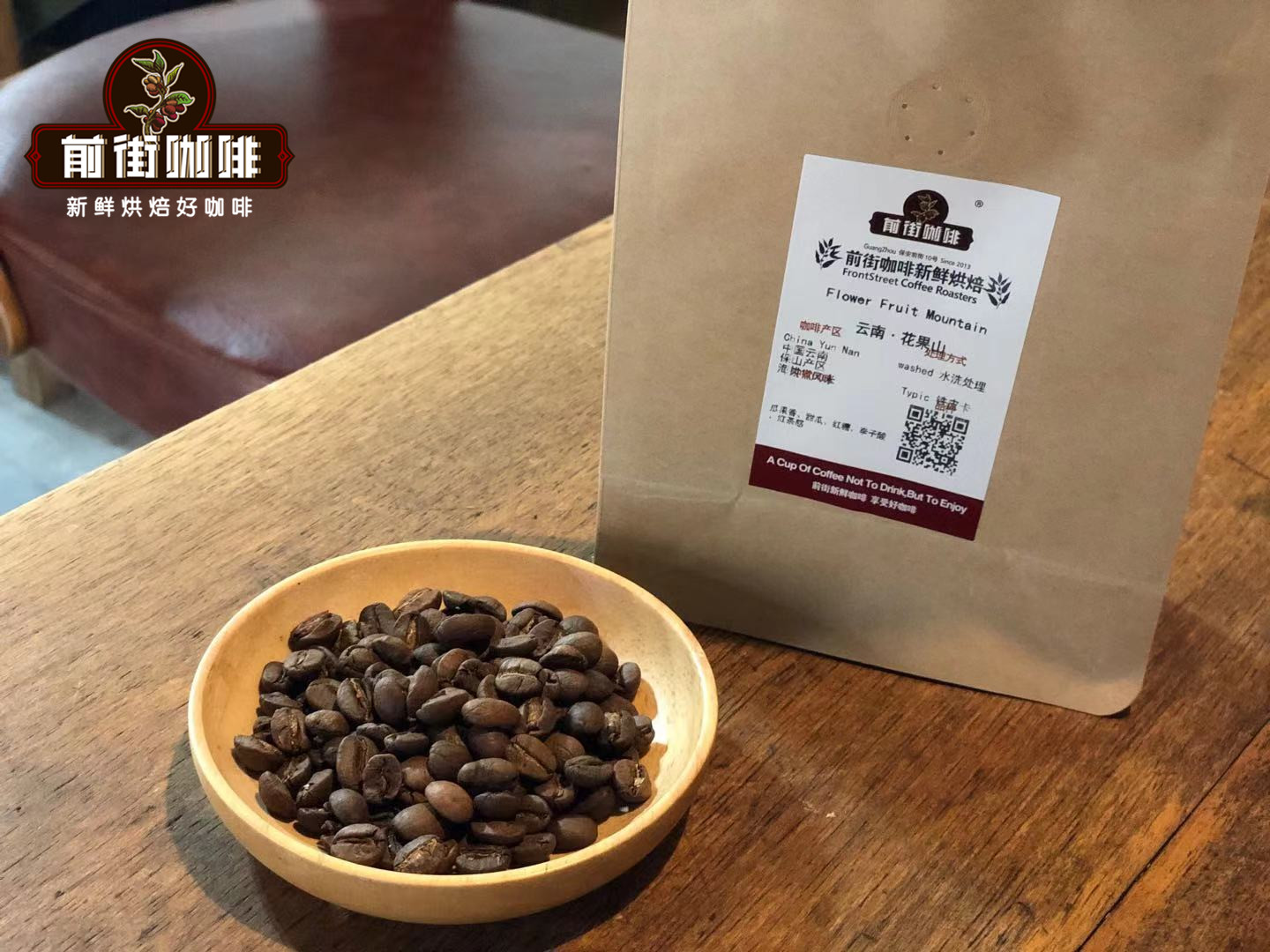
Country: China
Producing area: Baoshan, Yunnan
Altitude: 1450-1550m
Variety: iron pickup
Treatment: washing treatment
Flavor: citrus, nuts, plums, melon and fruit, brown sugar, black tea
Qianjie Coffee the difference between Yunnan Huaguoshan coffee beans and Yunnan Xiaoguo beans is that Huaguoshan is a variety of iron pickup, while Yunnan Xiaoguo is Katim, in fact, these two beans can be called small-grained coffee, but because the acid of Tippi card flower fruit is softer and richer, it is specially chosen to distinguish the two varieties of beans in the name of Huaguoshan.
Qianjie Coffee Yunnan small Coffee beans (rations beans)
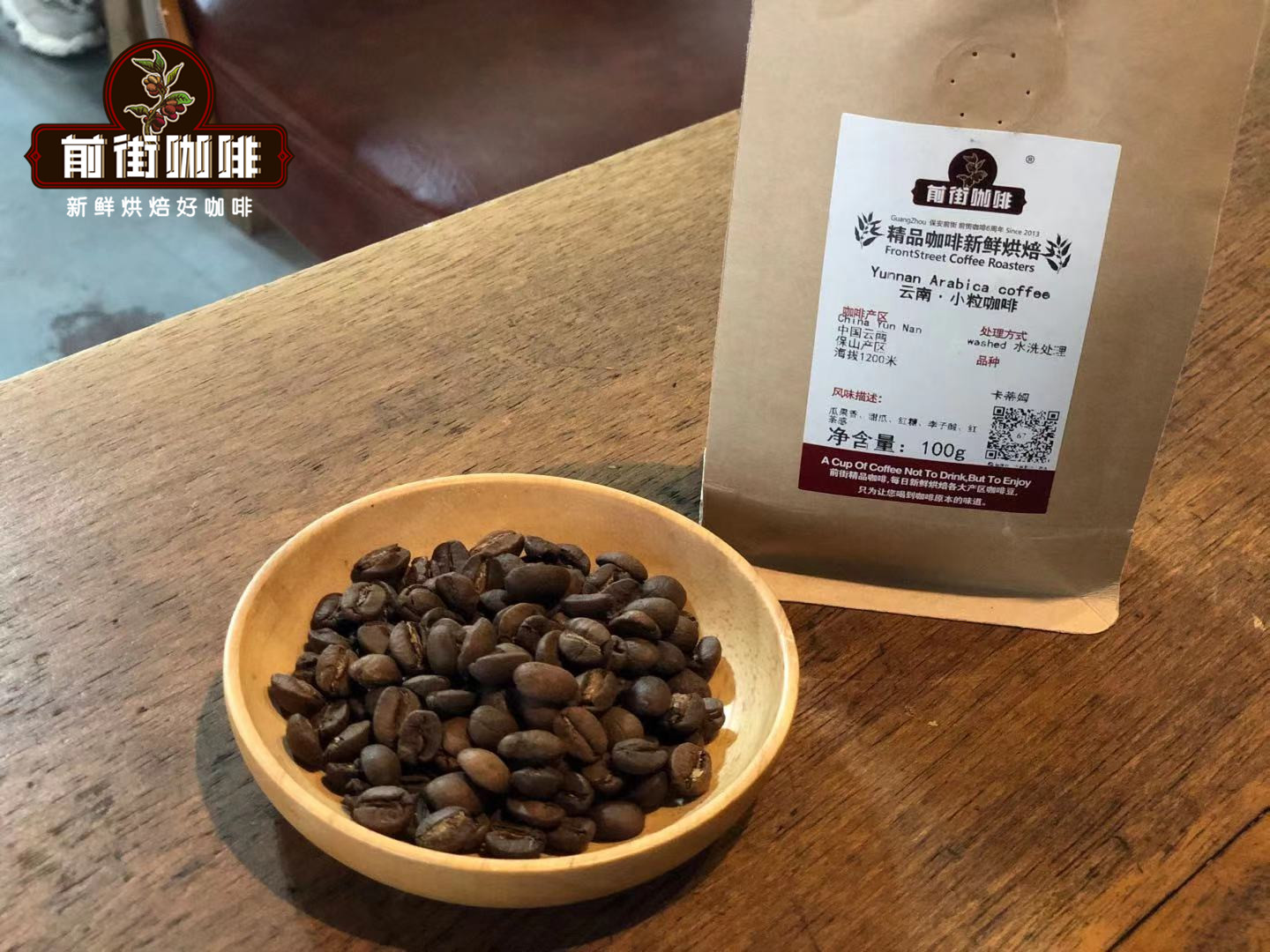
Country: China
Producing area: Baoshan, Yunnan
Altitude: 1200m
Variety: Katim
Treatment: washing treatment
Flavor: herbs, nutty, chocolate, caramel
Yunnan small-grain coffee refers to the small-grain coffee cultivated in Yunnan. Coffee is a small evergreen tree of Rubiaceae, native to Africa. At present, small-grain coffee and medium-grain coffee are mainly cultivated as beverage plants. The small-grain coffee cultivated in Yunnan, China traditionally refers to the mixed population of bourbon variety and iron pickup variety.
Small-grain coffee is the most widely cultivated species in the genus Coffee. Because of its strong cold resistance and short-term low temperature resistance, it can grow on mountains 2100 meters above sea level in tropical areas, but it is not resistant to drought; the branches are fragile and not resistant to strong wind; the disease resistance is weak; the fruit is easy to fall off after ripening; after processing, the coffee is mellow and contains low caffeine content.
Qianjie Coffee Yunnan Sun Katim Coffee beans
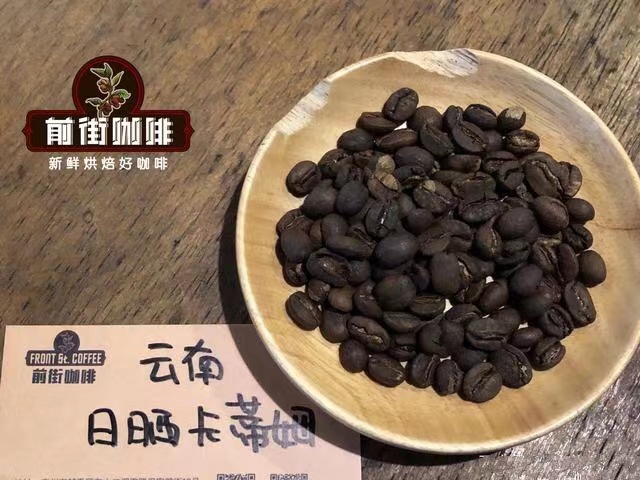
Country: China
Producing area: Yunnan (Baoshan)
Altitude: 1450-1550m
Variety: Katim
Treatment: red cherry sun treatment
Flavor: caramel, dried fruit, cocoa, dark chocolate, herbs, wood
At present, most of the plants in Yunnan are Katim, which is a hybrid of Kaddura and Robsta, a branch of the bourbon line in the Arabica species. The reason for planting this variety is that Katim has the Robusta gene, so it is better than a single old variety in disease resistance, and the yield is good. Compared with the delicate old variety, the disease resistance is poor and the yield is low. Farmers naturally prefer to plant Katim. So now there has been a Katim wind in Yunnan.
Is Yunnan coffee good?
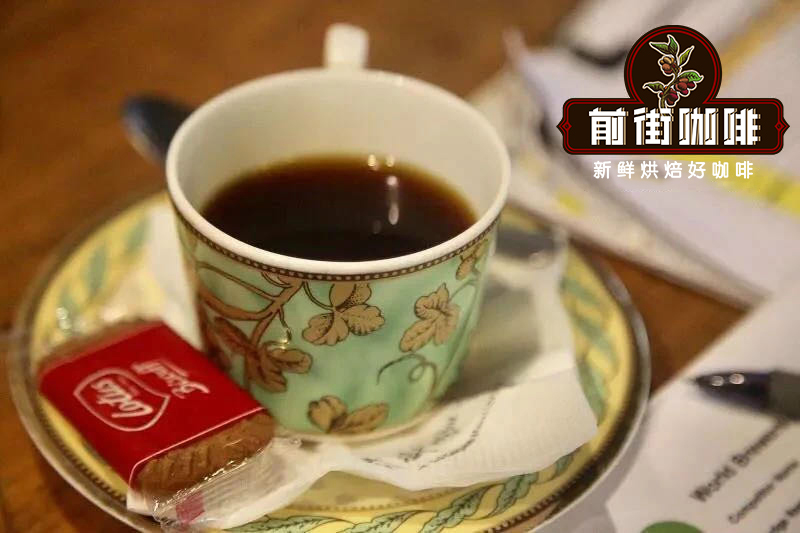
As for whether the individual coffee in Yunnan is good or not, I believe you have the answer in your heart. Its potential is unlimited, otherwise it would not be favored by so many coffee industry leaders. Qianjie coffee will be roasted and brewed before each new coffee bean is put on the shelf, so as to select the best flavor curve, which is convenient for coffee fans who come to Qianjie to taste in the future. Next, let's share the roasting and brewing data of Qianjie coffee on Yunnan Huaguo Mountain coffee beans.
Suggestion on roasting coffee in Yunnan Huaguoshan, Qianjie
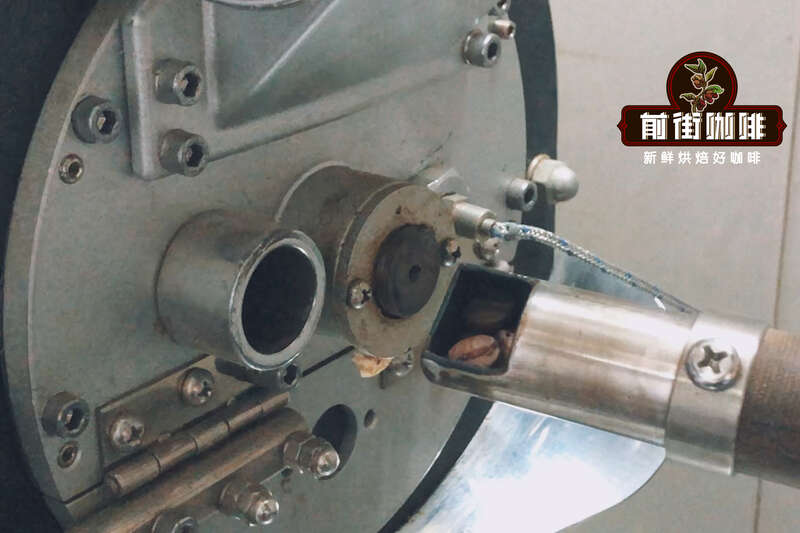
Generally speaking, coffee beans have a moisture content of 10.9%, so the Qianjie coffee roaster plans to put in the beans at 200 degrees in the roaster, then a big fire and a small throttle to speed up dehydration, and when the dehydration stage is over, open the stroke door and medium heat so that Maillard's reaction time is not too hasty, and the explosion will be released in 3 minutes. Temperature recovery point: 1 minute 32 °c, yellow point: 5 min 40 °c, 148.5 °c, first explosion: 8 minutes 59 seconds, 188.0 °c, development 3 minutes out of the furnace: 12 minutes 39 °C, 196 °C.
Qianjie Coffee Yunnan Huaguoshan Coffee Bean hand Chong suggestion
The V60 conical filter cup is recommended in the front street. V60 cup mouth is relatively large, coupled with its unique spiral curve ribs, so that the air can be discharged more easily to improve the extraction quality. The taste may not be thick enough, but its high concentration brings out the acidity and obvious aroma of Yunnan coffee is one of its major features.
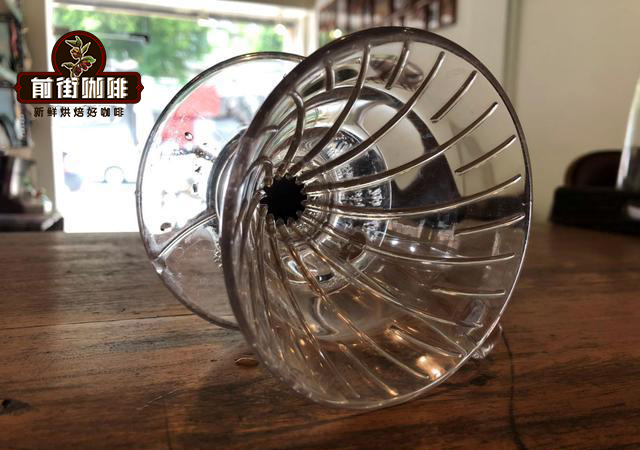
Filter cup: V60
Water temperature: 90-92 ℃
Powder / water ratio: 1:15
Degree of grinding: medium and fine grinding, that is, the thickness of fine sugar (VARIO 50: 57% pass rate of Chinese standard No. 20 screen)
Flushing and cooking technique: segmented extraction.
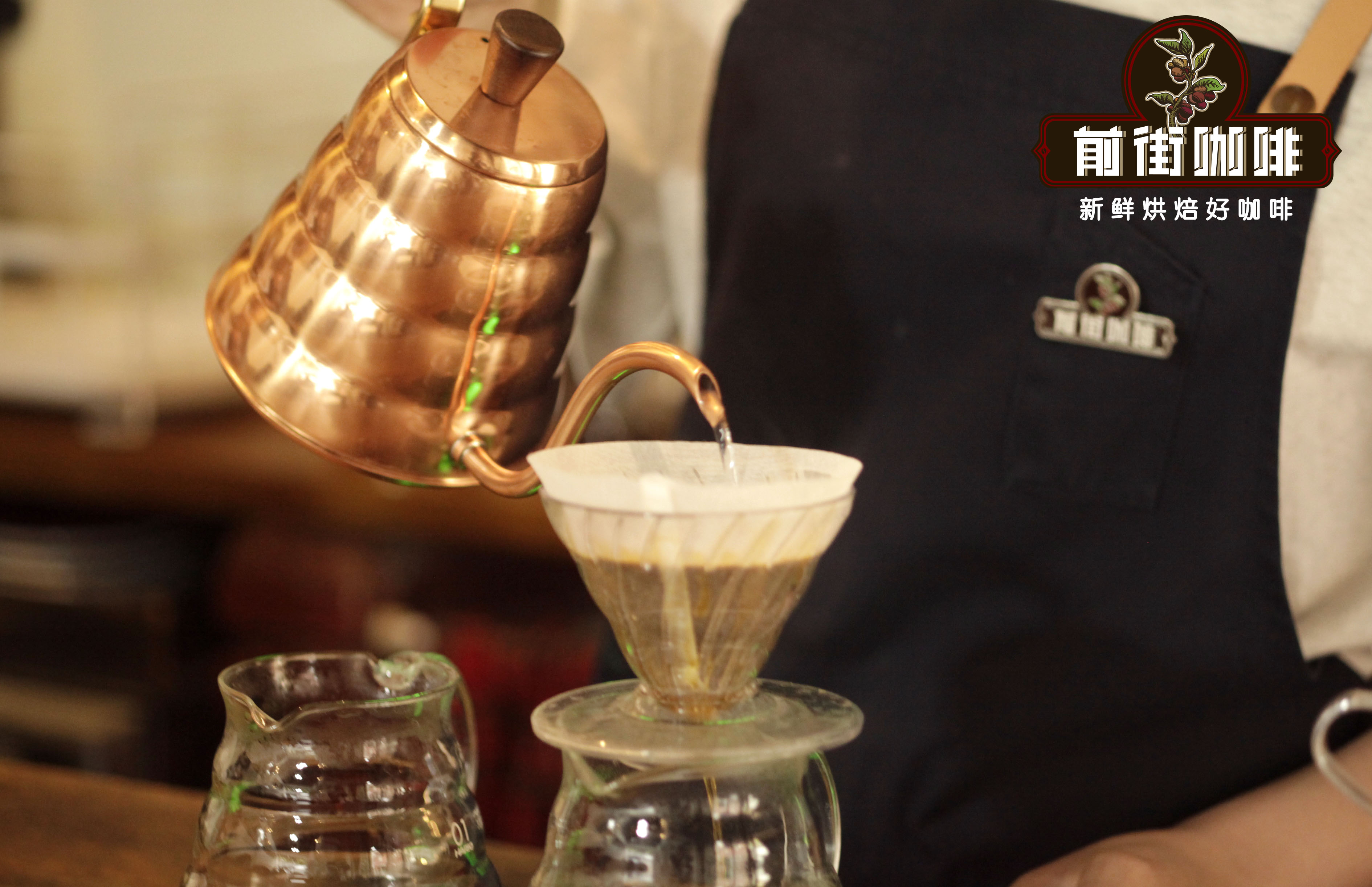
Steam with 30 grams of water for 30 seconds, small flow circle injection to 124 grams, continue to inject water to 227 grams when the water level is about to be exposed to the powder bed, remove the filter cup when the water level is about to expose the powder bed, and the extraction time is 2 minutes.
Huaguoshan cooking flavor description: strong but not bitter, fragrant but not strong, flower fragrance, sweet melon in the middle, black tea feeling at the end.
For more boutique coffee beans, please add private Qianjie coffee on Wechat. WeChat account: kaixinguoguo0925
Important Notice :
前街咖啡 FrontStreet Coffee has moved to new addredd:
FrontStreet Coffee Address: 315,Donghua East Road,GuangZhou
Tel:020 38364473
- Prev

Introduction to Yunnan Tieka Coffee Flavor description, Taste Grinding and Calibration treatment
In 1955, Yunnan reclamation people began to introduce and try to grow coffee, which was the starting point of Yunnan coffee after the founding of New China. Therefore, with the rise and growth of Yunka, Yunnan has an overall plan for land reclamation. Chi Zhonghua said: in terms of regional layout, we hope to break the four columns and five columns of existing coffee planting and production enterprises, take capital as a link, and cooperate with high-quality coffee enterprises in the province to jointly build Yunnan.
- Next

Where does the aroma of coffee alcohol come from? why is there such a saying?
90-95% of Arabica coffee trees are self-pollinated: the pollen that pollinates the flowers comes from the same plant, and the berries begin to develop immediately. The fruit is a drupe with a diameter of about 1.5 centimeters. depending on the variety, the berries change from green to yellow or red as they mature. Because the flowering time is scattered back and forth, you will see red and green berries hanging on the tree. Coffee fruit
Related
- Beginners will see the "Coffee pull flower" guide!
- What is the difference between ice blog purified milk and ordinary milk coffee?
- Why is the Philippines the largest producer of crops in Liberia?
- For coffee extraction, should the fine powder be retained?
- How does extracted espresso fill pressed powder? How much strength does it take to press the powder?
- How to make jasmine cold extract coffee? Is the jasmine + latte good?
- Will this little toy really make the coffee taste better? How does Lily Drip affect coffee extraction?
- Will the action of slapping the filter cup also affect coffee extraction?
- What's the difference between powder-to-water ratio and powder-to-liquid ratio?
- What is the Ethiopian local species? What does it have to do with Heirloom native species?

